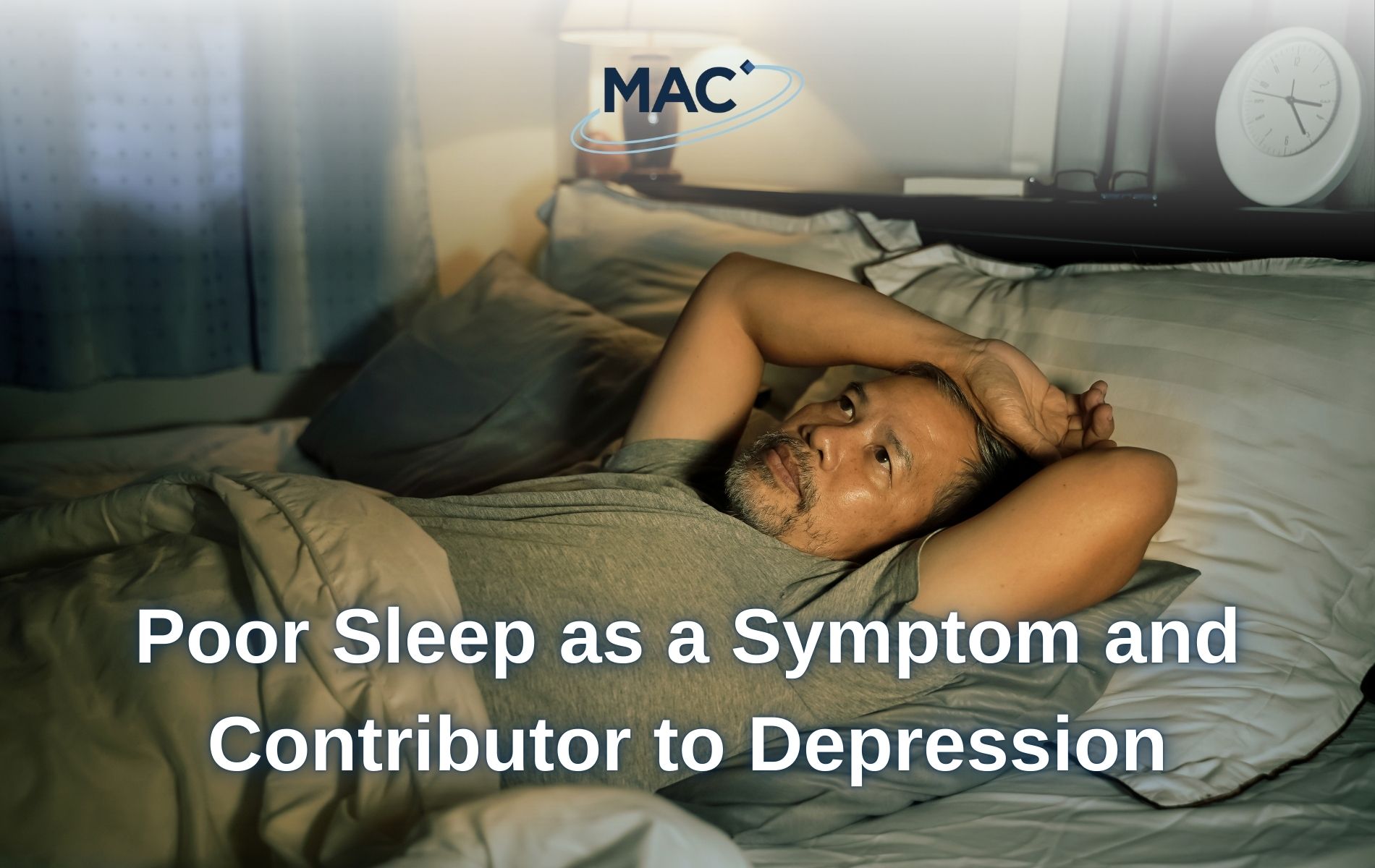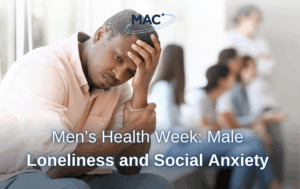World Sleep Day is a useful reminder of the vital role sleep plays in our overall wellbeing. While many of us are aware that good sleep is essential for physical health, its impact on mental health, particularly depression, is often underestimated. Poor sleep and depression share a complex, bidirectional relationship: not only is sleep disturbance a common symptom of depression, but inadequate rest can also contribute to its development and severity.
What is depression?
Depression is a mental health disorder that around 1 in 6 adults in the UK say they experienced moderate to severe depressive symptoms of1. These include feeling unhappy for long periods of time, feelings of hopelessness, and finding no pleasure in hobbies and interests that you once enjoyed (anhedonia). Another well-documented symptom of depression is disrupted sleep.
Sleep and Depression
The connection between depression and sleep is not merely coincidental but deeply rooted in neurobiological mechanisms. Sleep disturbances, whether in the form of insomnia (the inability to fall asleep) or hypersomnia (excessive sleepiness), often precede or accompany episodes of depression. This relationship forms a vicious cycle, where poor sleep exacerbates depressive symptoms, and conversely, depression disrupts sleep patterns.
Approximately 40% of people with insomnia have clinical depression, and up to 80% of people with depression experience periods of insomnia2.
How Poor Sleep Contributes to Depression
Just as depression can lead to sleep disturbances, inadequate sleep can also increase the risk of developing depression. Chronic sleep deprivation affects the brain’s ability to regulate emotions, exacerbating stress and lowering resilience against negative thoughts. In one study, researchers found that people who slept six hours or less per night were 2.5 times more likely to experience frequent mental distress3.
One reason for this connection is that sleep plays a crucial role in emotional processing. During deep sleep, the brain processes and regulates emotions, helping individuals manage stress and maintain balanced moods. When sleep is consistently disrupted, emotional regulation suffers, leading to heightened irritability, anxiety, and an increased likelihood of experiencing depressive episodes.
Additionally, lack of sleep contributes to hormonal imbalances, increasing cortisol (a stress hormone) levels, sometimes as high as a 45% increase4. Elevated cortisol not only heightens feelings of stress and anxiety but also suppresses the production of serotonin, a neurotransmitter linked to happiness and relaxation. Over time, this imbalance can contribute to the onset of depression or worsen existing symptoms.
Breaking the Cycle: Improving Sleep to Support Mental Health
Given the intertwined relationship between sleep and depression, addressing sleep issues can be a vital step in improving mental health. Some strategies to improve sleep quality include:
- Maintaining a Consistent Sleep Schedule – Going to bed and waking up at the same time every day helps regulate the body’s internal clock.
- Creating a Relaxing Nighttime Routine – Engaging in calming activities, such as reading or meditation, can signal to the brain that it’s time to wind down.
- Limiting Screen Time Before Bed – The blue light emitted by screens interferes with melatonin release, making it harder to fall asleep.
- Seeking Professional Help – Cognitive Behavioural Therapy for Insomnia (CBT-I) is a proven approach to treating sleep disturbances linked to depression.
Clinical Trials for Depression
Here at MAC Clinical Research, we want to improve quality of life for those living with depression by finding potential new treatment options through clinical trials.
If you or a loved one is living with depression, you could help researchers investigate potential new treatments. MAC are running clinical trials at their clinics across the UK and, if eligible, you could receive financial reimbursement. Eligible participants will also receive travel expenses and a full health check-up.
To find out more and register your interest, visit MAC’s future trials webpage.
1 Office for National Statistics – Cost of living and depression in adults, Great Britain: 29 September to 23 October 2022
2 Sleep Foundation – Depression and Sleep
3 Preventing Chronic Disease – Effect of Inadequate Sleep on Frequent Mental Distress
4 Sleep – Sleep loss results in an elevation of cortisol levels the next evening






